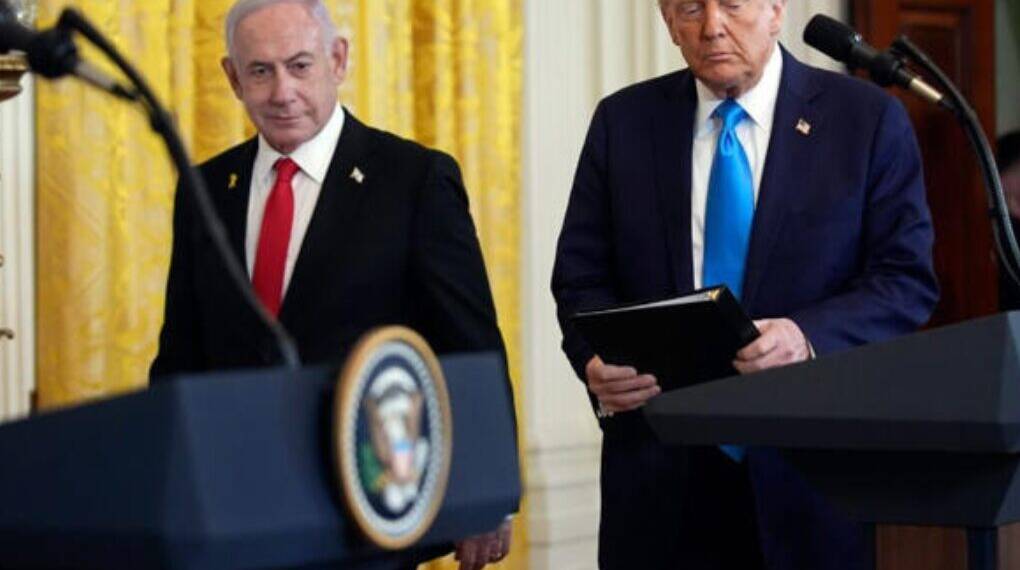The recognition of Palestine by several of America’s closest allies has sparked a fresh geopolitical storm, revealing not just divisions over the Israel–Palestine conflict but also deeper cracks in transatlantic unity. On Sunday, Britain, Canada, Australia, and Portugal announced their decision to formally recognise a Palestinian state, a move immediately dismissed by the United States as “performative.”
A US State Department official, speaking anonymously, said Washington’s focus remained on “serious diplomacy, not gestures,” reiterating that American priorities were Israel’s security, the release of hostages, and ensuring the region remained “free from Hamas.”
Yet, for many observers, the coordinated recognitions represent more than symbolic solidarity with the Palestinian cause. They are also a calculated pressure tactic aimed at Washington itself, reflecting growing frustration among European and G7 allies over how they are treated by the US.
A Shift in Transatlantic Dynamics
The move comes at a time when relations between the United States and its allies have been increasingly strained. Under Donald Trump’s second administration, Washington has tightened its grip on weapons exports, re-emphasised “America First” policies, and often dictated the terms of Western strategy on Russia, China, and the Middle East.
By recognising Palestine, these allies are signalling a break from the US-led line that has long prioritised Israeli security above Palestinian statehood. It is a bold assertion of diplomatic independence — and one that doubles as leverage in broader negotiations with Washington.
Netanyahu’s Firm Rejection
Israeli Prime Minister Benjamin Netanyahu wasted no time in condemning the recognitions. “It’s not going to happen. There will be no Palestinian state to the west of the Jordan River,” he declared. He described the decisions as “rewarding terror with an enormous prize” after the October 7 Hamas attacks.
Netanyahu added that his next steps would depend on discussions with US President Donald Trump, underscoring Israel’s reliance on American backing even as it faces growing diplomatic isolation.
Allies Cite Israel’s Role in Crisis
For the allies, however, the recognition was not simply a symbolic gesture. Canadian Prime Minister Mark Carney pointed to Israel’s policies as actively undermining the prospects of peace — from accelerated settlement construction and annexation votes in the Knesset to restrictions on humanitarian supplies into Gaza.
Australia described its recognition as an acknowledgment of the Palestinian people’s “legitimate, long-standing aspirations for statehood.” Portugal and the UK echoed similar reasoning, framing the decision as a necessary step toward lasting peace.
The statements suggest a coordinated narrative: that Israel’s current course is incompatible with a two-state solution and that waiting for US approval is no longer an option.
Public Pressure Meets Geopolitical Strategy
Domestic politics have also played a role. Public opinion across much of Europe, Canada, and Australia has shifted dramatically during the Gaza conflict, with mass protests demanding recognition of Palestinian rights. Leaders are not only responding to humanitarian concerns but also tapping into domestic constituencies that increasingly view Washington’s unwavering support for Israel as out of touch.
But there is also calculation at play. By taking a bold stance on Palestine, these governments are testing Washington’s willingness to compromise on other issues — from trade disputes and NATO burden-sharing to energy policy. In effect, Israel has become a pressure point through which allies can remind the US that partnership must be reciprocal.
More Recognitions on the Horizon?
Diplomats in Brussels suggest more countries could soon follow. France and Spain are reportedly considering recognition, while even Germany — traditionally Israel’s strongest European supporter — is under mounting domestic pressure to re-evaluate its position.
If momentum builds, Washington and Israel could find themselves increasingly isolated, forced either to recalibrate their policies or risk losing influence over the peace process altogether.
A New Front in Western Diplomacy
The wave of recognitions underscores a broader truth: the US no longer commands unquestioned loyalty from its allies. By using Palestine as a diplomatic lever, these nations are making clear they expect to be treated as partners, not subordinates.
Whether this strategy will yield concessions from Washington remains to be seen. But one thing is certain: the recognitions have transformed Palestinian statehood into not only a moral and humanitarian issue but also a bargaining chip in the evolving power game between the US and its allies.








